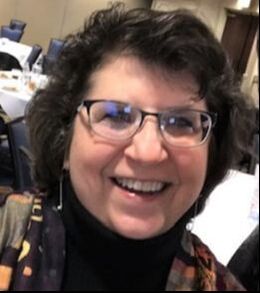|
Maggie Potapchuk is founder of MP Associates Consulting, a national practice that works in partnership with individuals, organizations, and communities to co-create a racially just world. Potapchuk works with organizations to operationalize racial justice; provides individual and group equity coaching; facilitates white caucuses; develops racial equity and justice curricula and tools; conducts research and curates resources and best practices of racial justice work; and builds networks and communities of practice to increase individual learning and collective action for racial justice.
A sample of her consulting includes:
She recently wrote Transforming Organizations by Operationalizing Racial Justice, DEI Strategy is Limited and Potentially Harmful: So Now what?, and developed Disrupting White Dominant Culture: Reflection Questions for white People Working for Racial Justice. Potapchuk also released the Racial Equity Decision-Making Tool and with additions from Raquel Gutierrez. Potapchuk was the lead author of the publication, Flipping the Script: White Privilege and Community Building. She piloted a workshop for race relations and racial justice organizations that are using different approaches and methodologies on how to work collaboratively in four communities: Boston, St. Paul, Santa Barbara, and Knoxville. This work culminated in the report, Cultivating Interdependence: Guide for Race Relations and Racial Justice Organizations. Her work in communities includes: conducting research on the state of race relations in Columbus, GA; working with the Race Relations Center of East Tennessee to create a program matrix for a nine-county region to build an inclusive region; and working with the National League of Cities on the Selma, AL, Community Improvement Initiative to address issues of race, education, governance and economic development. Potapchuk partnered with the Aspen Institute Roundtable for Community Change to conduct her research, Community Change Processes and Progress in Addressing Racial Inequities. From 2000–2003, Maggie served as Senior Program Associate with the Joint Center for Political and Economic Studies’ Network of Alliances Bridging Race and Ethnicity (NABRE) program, a national effort to facilitate communication and provide support for 185 community-based race relations and racial justice organizations. She researched the response of Clarksburg, West Virginia to a white nationalist group rally, which resulted in the publication, Steps Toward an Inclusive Community, which includes the “Inclusive Community Assessment Tool.” From 1995–1999, Potapchuk was Director of the Dismantling Racism Program at the National Conference for Community and Justice (NCCJ), St. Louis Region. The Dismantling Racism Institute, a leadership development program, was chosen as one of seven promising practices in the book, Intergroup Relations in the United States: Seven Promising Practices, funded by the Ford Foundation. She was also project director and primary author of CommUnity-St. Louis, a comprehensive community initiative to address racism. Potapchuk was honored for her work by the St. Louis YWCA, which presented her the 1999 Racial Justice Award. Potapchuk currently serves on the Equity in the Center’s Board. She was a founding member and served on the leadership team of the Within Our Lifetime national network of racial healing and justice organizations. One of her projects she supported was #DisruptPhilanthropyNOW!, urge movement building, racial justice and healing organizations to disrupt the ways philanthropy upholds white supremacy and oppression. She serves as an emeritus member of the advisory board for Baltimore Racial Justice Action. Potapchuk is a racial equity affiliate consultant of RoadMap. She was co-chair, Illuminating Whiteness and Colonization: Developing a Literacy for Racial Justice Globally. She received her B.S. in child and family community services from Bowling Green (Ohio) State University, and her M.Ed. in organizational development and applied group studies and a Social Justice Issues Certificate from the University of Massachusetts at Amherst. |

